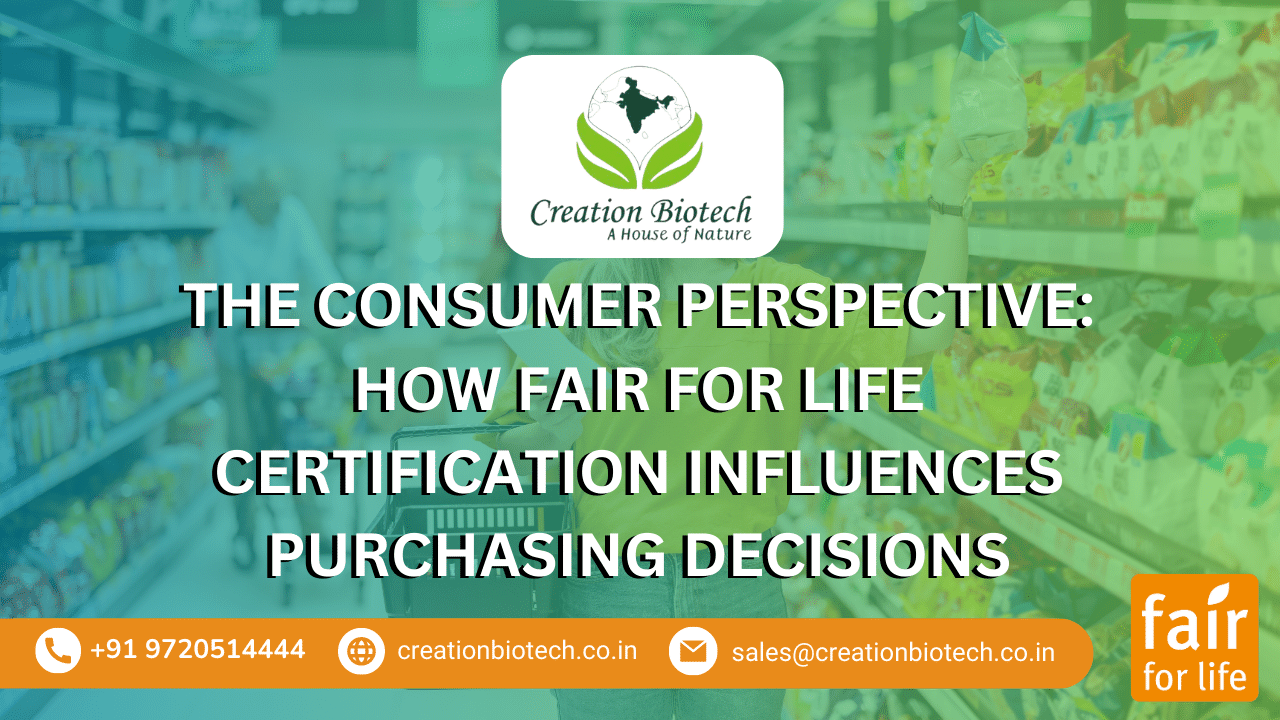In today’s increasingly conscious consumer landscape, people are becoming more aware of the ethical and social implications of their purchasing decisions. As a result, certifications like Fair for Life have gained prominence. This article delves into how Fair for Life certification influences consumer purchasing decisions. By examining the key factors that drive consumers to choose Fair for Life-certified products, we can better understand the impact of this certification on consumer behavior and shed light on the growing demand for ethical and sustainable products.
1. Understanding Fair for Life Certification: Before exploring how Fair for Life certification influences purchasing decisions, it is important to grasp the essence of this certification. Fair for Life is a third-party certification program that guarantees fair trade practices and social responsibility throughout the supply chain. It encompasses various sectors, including agriculture, food processing, manufacturing, and more. By meeting specific criteria, companies and producers demonstrate their commitment to fair wages, safe working conditions, and environmentally sustainable practices.
2. The Rise of Conscious Consumerism: The rise of conscious consumerism has significantly impacted purchasing decisions. Consumers are increasingly considering the social and environmental impact of the products they buy. Fair for Life certification resonates with this trend, as it provides assurance that the products have been ethically sourced and produced. The certification addresses concerns such as child labor, worker exploitation, and environmental degradation, which are key considerations for conscious consumers.
3. Building Trust and Transparency: Fair for Life certification helps build trust between consumers and companies. The certification process requires transparency in the supply chain, ensuring that all stakeholders involved adhere to fair trade practices. By providing a clear set of standards and regular audits, Fair for Life instills confidence in consumers that the products they purchase align with their ethical values.
4. Empowering Consumers through Information: Fair for Life certification empowers consumers by providing them with information about the products they buy. The certification label allows consumers to easily identify and differentiate Fair for Life products from others in the market. By making this information readily available, consumers can make informed choices that align with their values, supporting businesses that prioritize fair wages, community development, and sustainable practices.
5. Driving Change in Industries: Fair for Life certification plays a crucial role in driving change in various industries. When consumers consistently choose Fair for Life-certified products, it sends a powerful message to companies and encourages them to adopt fair trade practices. This demand-driven shift influences entire supply chains, leading to improved working conditions, fairer wages, and greater environmental responsibility.
6. Overcoming Challenges and Expanding Reach: While Fair for Life certification has made significant strides, there are still challenges to overcome. One such challenge is increasing awareness and accessibility of Fair for Life-certified products. Companies and retailers can work together to expand the availability of these products, making them more accessible to consumers worldwide. Additionally, continued education and awareness campaigns can help consumers understand the value and impact of choosing Fair for Life products.
Conclusion: Fair for Life certification is a powerful force in shaping consumer purchasing decisions. As consumers become more aware of the ethical and social implications of their choices, they actively seek out products that align with their values. Fair for Life certification provides the transparency, trust, and assurance consumers seek in supporting businesses that prioritize fair trade practices. By choosing Fair for Life-certified products, consumers drive change, influence industries, and contribute to a more ethical and sustainable future. As the demand for fair and responsible products grows, the impact of Fair for Life certification will continue to shape consumer behavior and business practices.

Leave a Reply